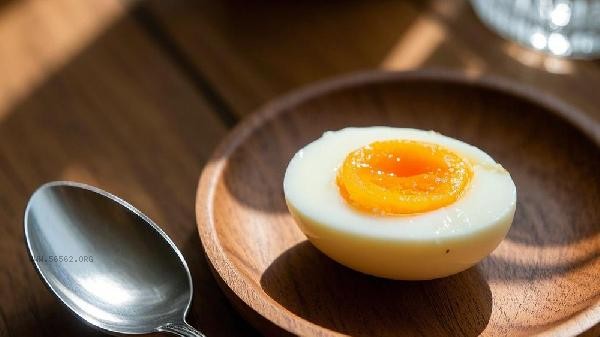Cracking of boiled eggs is usually related to sudden temperature changes, structural defects in the eggshell, or improper handling. There are mainly factors such as insufficient freshness, excessive heat, pouring cold water into the pot, eggshell collision, and unperforated exhaust.

1. Insufficient Freshness
Eggs stored for a long time have an enlarged internal chamber, which reduces the viscosity of the egg white. When heated, the gas expansion pressure is more likely to break through the eggshell. Fresh eggs have smaller air chambers and denser egg whites, making them more resistant to boiling. When making a purchase, the size of the air chamber can be observed by lighting, or the fluidity can be judged by shaking and listening to sound.
2. Excessive heat
Boiling water with excessive force can cause uneven local stress on the eggshell. When the water continues to roll vigorously, the eggs constantly collide with the pot wall or other eggs in the pot. It is recommended to use medium to low heat to keep the water temperature slightly boiling. It can be placed on a steaming rack to reduce direct contact with the bottom of the pot.
3. Boiling with cold water
During the heating process of cold water, the expansion rates of eggshells and proteins are different, and cracks occur when the temperature difference exceeds the limit that the eggshells can withstand. Eggs can be placed at room temperature and then placed in warm water that has been heated to around 50 degrees Celsius, or heated using steam over water.

4. Eggshell collision
During the cooking process, eggs collide with each other or rub against the metal pot wall, and weak parts are prone to cracking. Before cooking, gently place the eggs into the pot with a spoon, ensuring that the amount cooked in one go does not exceed two-thirds of the container's capacity. Adding a small amount of salt can slow down the impact of water flow.
5. Unscented exhaust
There is an air layer of about 5-9 millimeters in the blunt end chamber of the egg, and when heated, the air expands and has nowhere to be released. Puncture a 0.5mm small hole with a needle at the blunt end to balance internal and external pressure. Pay attention to the hole depth not exceeding 3 millimeters to avoid puncturing the inner membrane. Placing the hole facing upwards is more conducive to exhaust.

To prevent cracking of boiled eggs, it is necessary to comprehensively control variables: select fresh eggs within two weeks of production date, puncture the blunt end after returning to room temperature, put warm water into the pot and keep it on low heat for slow cooking. If cracked eggs are found before boiling, they can be immediately reduced to low heat. After the protein solidifies, they can still be consumed but should be consumed as soon as possible. When soaking boiled eggs in cold water, the temperature difference should be controlled within 30 degrees to avoid exacerbating cracks due to thermal expansion and contraction. Placing eggs with their tips facing downwards during daily storage helps maintain the stability of the air chamber.









Comments (0)
Leave a Comment
No comments yet
Be the first to share your thoughts!